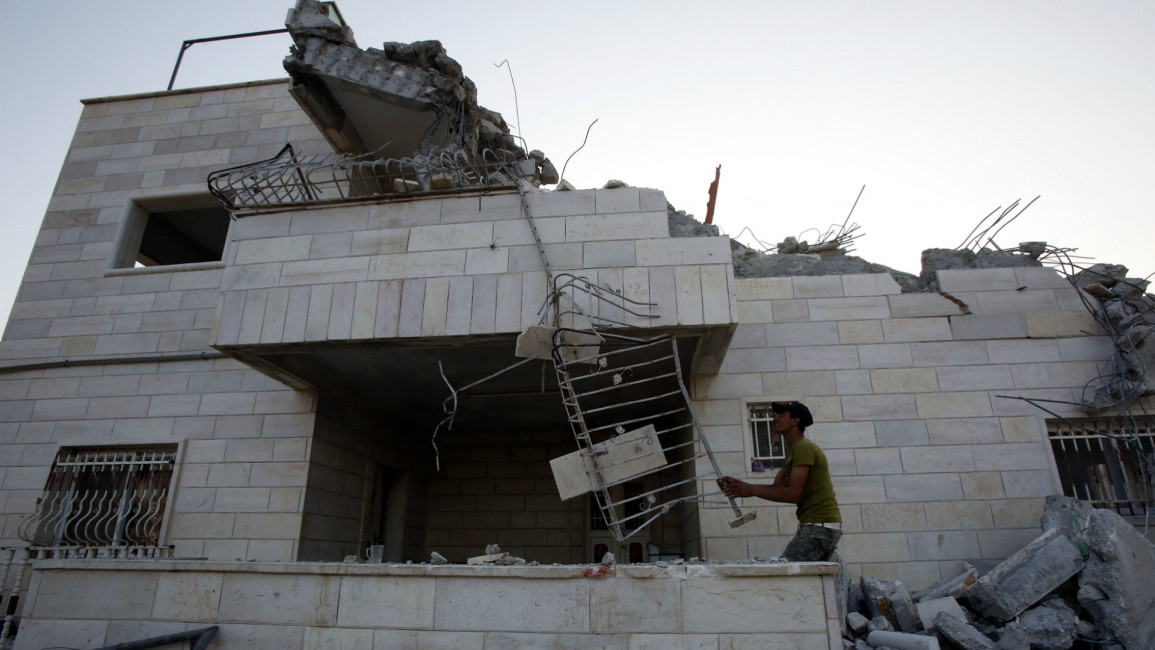Record number of Palestinian homes demolished by Israeli authorities
During 2016, 1,089 Palestinian-owned structures, including those in East Jerusalem, were torn down displacing 1,593 Palestinians and impacting the livelihoods of another 7,101.
The data shows the highest figures for demolition and displacement in the occupied Palestinian territory since the UN Office for the Coordination of Humanitarian Affairs (OCHA) began recording the information in 2009.
The overwhelming majority of structures that were seized or destroyed were done so because of a lack of Israeli-issued building permits, the report said.
The structures include houses, shelters for livestock and installations such as solar panels.
Many are funded by foreign donors such as the EU and its individual member states to meet urgent humanitarian needs of people under military occupation.
Israel says it forbids unlicensed construction, invoking treaties with the Palestinians that give it full control over 60 percent of the West Bank designated as "Area C" and asserting sovereignty over all of Jerusalem.
In the Israeli-beseiged Gaza Strip, some 51,000 Palestinians are still displaced after losing their homes in the 2014 war, down from around 90,000 in 2015 with many families living in shelters provided by aid agencies.
However the OCHA data also indicates a fall in casualties on both sides. As of the end of December, 109 Palestinian and 13 Israelis were killed in 2016, compared to 169 Paelstianians and 35 Israelis in 2015.
However the year was marked by tighter restrictions on Palestinians imposed by Israeli authorities.
According to OCHA, a daily average of 531 Palestinians exited along the Israeli-controlled Erez crossing at the northern Gaza border throughout 2016, down from 602 in 2015 and 26,000 before the Second Intifada in September 2000.
Permits to allow Palestinians to seek medical treatment outside Gaza dropped, with Israeli authorities only approving 66 percent of applications in time for hospital appointments, down from 78 percent last year.
The Egyptian-controlled Rafah crossing was opened only under exceptional circumstances, with a monthly average of 3,306 crossings in both directions - down from 25,186 in 2013 before the closure was imposed in October 2014.
The cumulative number of checkpoints, road blocks, earth mounds and gates restricting free movement in the occupied territories has increased by five percent on 2015.
The OCHA adds less of these barriers are permanently staffed, however, effectively allowing more movement.



